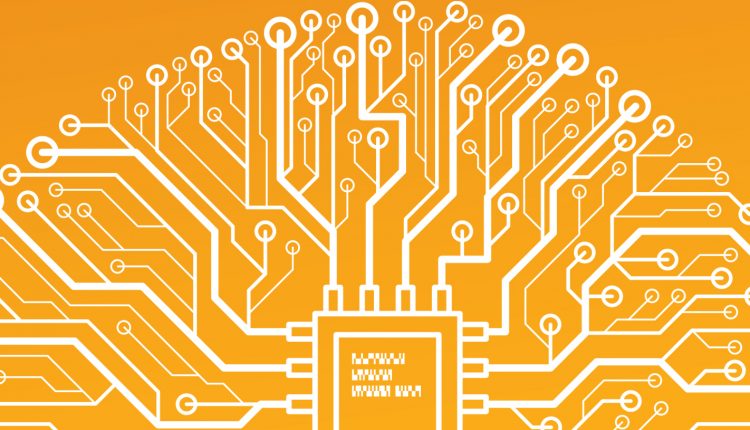05.28.2020
The annual Computer Vision and Pattern Recognition Conference (CVPR), the largest conference of its kind, unveils the latest research spanning the fields of computer vision, deep learning, artificial intelligence, image compression, pattern analysis, and beyond. This year’s conference convenes as a virtual event from 14 -19 June 2020.
As a virtual event, attendees will be able to participate remotely from around the globe, accessing the diverse and original content for which the conference is known. CVPR 2020 registrants will explore topics as varied as medical data analysis, facial recognition, machine learning, autonomous driving, social analytics, fashion applications, and much more. The following sampling of presentations offers a glimpse into the leading research to be introduced at this year’s event.
Medical Data Analysis
– IntrA: 3D Intracranial Aneurysm Dataset for Deep Learning1 (Tuesday, 16 June, 14:40, PDT) – Researchers from the University of Tokyo and South China University of Technology introduce a 3D intracranial aneurysm dataset, IntrA, that supports physicians in more precisely diagnosing and treating intracranial aneurysms.
Facial Recognition
– Face X-Ray for More General Face Forgery Detection2 (Wednesday, 17 June, 10:20, PDT) – Microsoft Research Asia and Peking University unveil a specialized X-ray approach for detecting forgery in facial images.
Machine Learning
– Iterative Answer Prediction with Pointer-Augmented Multimodal Transformers for TextVQA3 (Thursday, 18 June, 09:25 PDT) – Scientists from the University of California, Berkeley and Facebook AI Research reveal a new model for TextVQA—a dataset that explores visual reasoning based on text in images4—tasks that outperforms existing approaches on three benchmark datasets.
Autonomous Driving
– SurfelGAN: Synthesizing Realistic Sensor Data for Autonomous Driving5 (Thursday, 18 June, 11:10 PDT) – Waymo, Google Brain, and the University of Texas at Austin have joined forces to advance autonomous driving by synthesizing realistic camera data for simulated scenarios.
Social Analytics
– Learning Interactions and Relationships between Movie Characters6 (Thursday, 18 June, 9:15 PDT) – Researchers from Max-Planck-Institute for Informatics and Inria Paris propose neural models to learn and jointly predict interactions and relationships, leveraging movie characters to test their model.
Fashion Applications
– ViBE: Dressing for Diverse Body Shapes7 (Thursday, 18 June, 11:40 PDT) – A new model helps to align clothing images with body type through a body-aware embedding algorithm, according to researchers from the University of Texas at Austin and Facebook AI Research.
“Presentations debuted at CVPR describe significant advances in computer science, with substantial impact throughout society,” said Ramin Zabih, Cornell Professor of Computer Science and Co-Chair of the CVPR 2020 Organizing Committee. “In conference sessions, we’re seeing the best work produced by a research community that numbers in the thousands and spans the globe. The thriving commercial ecosystem that surrounds CVPR turns these research papers into exciting products in a surprisingly short timeframe.”
These technical highlights scratch the surface of a program of more than 1,500 presentations, including oral and poster presentations, tutorials, and workshops. In addition, CVPR will feature fireside chats with Satya Nadella, CEO, Microsoft; Charlie Bell, SVP, Amazon Web Services; Dr. Harry Shum, former Executive Vice President, Microsoft’s Artificial Intelligence and Research Group; and Dr. Fei-Fei Li, former Vice President, Google and Chief Scientist of AI/ML, Google Cloud.
Author presentations, including live Q&A sessions, will take place at the above-referenced times, and final proceedings will be published in IEEE Xplore. Accredited members of the media can register for the virtual conference or request individual papers by emailing media@computer.org. Additional details on the full virtual CVPR 2020 program can be found on the conference website at cvpr2020.thecvf.com.
“Through CVPR, leaders in the field band together to present the advancements fueling next-generation technologies and solutions,” said IEEE Computer Society Executive Director Melissa Russell, co-sponsor of the event. “This year’s event continues to facilitate global exchange, despite the impact of COVID-19. It’s a testament to the resilience of this community that no matter the challenge, scientific collaboration prevails.”
www.computer.org



Comments are closed.